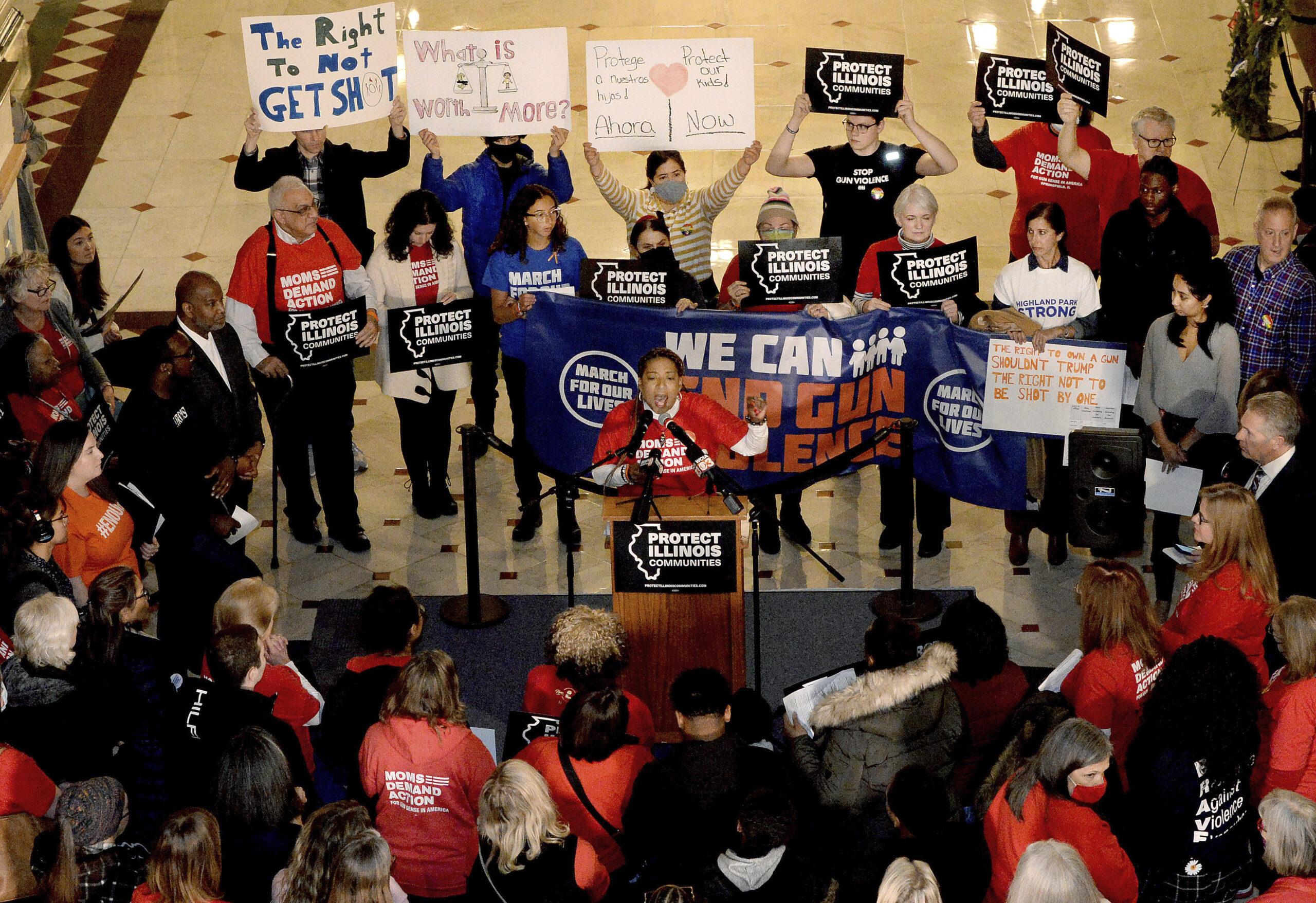A year after the Supreme Court upended the legal status quo on gun regulation with its landmark Bruen decision, more than a dozen gun violence prevention groups and advocates have signed on to an effort to reform the nation’s highest court.
The nationwide “Just Majority” campaign, which launched on April 24, will push for Congress to expand the court, impose term limits, and establish a binding code of ethics for justices. Over a three-month period, the campaign will tour across the U.S., ending in Washington, D.C. in June. Stops in New York, Chicago, and Newtown, Connecticut, will focus specifically on the court’s impact on gun laws and gun violence.
There are more than 30 progressive groups involved, with focuses ranging from climate change and voting access to reproductive and women’s rights. For the five gun reform groups who’ve signed on, the effort represents somewhat of a departure from the typical playbook, which has frequently centered on lobbying for specific policies and legislation on the state and federal levels.
“It’s time for the majority of Americans who support common sense gun laws to pay as much attention to the Supreme Court as the gun lobby has, and to restore balance through reforms including Supreme Court expansion,” said Fred Guttenberg, a coalition member and founder of Orange Ribbons for Jaime, named for his daughter, who was a victim of the 2018 Marjory Stoneman Douglas High School shooting in Parkland, Florida.
Among the coalition are the gun reform groups March for Our Lives, Guns Down America, Teachers Unify to End Gun Violence, This Is Our Lane, and the Newtown Action Alliance. Notably, larger, more establishment gun reform groups like Giffords, Everytown, and Brady are not listed as participants.
A dozen high-profile advocates, many of whom have not been involved with Supreme Court reform efforts before, have also joined in their individual capacities, including Shannon Watts, the founder of Moms Demand Action, and David Hogg, a Parkland survivor and co-founder of March for Our Lives. (Moms Demand Action is part of Everytown for Gun Safety, which provides financial grants to The Trace. You can find our donor transparency policy here, and our editorial independence policy here.)
Gun regulations have been in the crosshairs of the conservative Supreme Court in recent years. In June, the court drastically expanded gun rights with its ruling in New York State Rifle & Pistol Association v. Bruen, establishing for the first time a constitutional right to carry loaded guns outside the home. Aside from throwing concealed carry permitting systems into flux in several states, the decision established a new standard of review that is structurally more favorable to gun rights, effectively making it more difficult for states to enact new regulations and protect their existing laws from challenges.
Lower courts have applied Bruen to find domestic violence offender gun bans, marijuana-related gun prohibitions, and other laws unconstitutional. Many other challenges, including those to state bans on assault weapons and high-capacity magazines, are pending in lower courts.
“Lately, it seems like the Supreme Court thinks guns should have more rights than kids do,” Watts said. “That needs to change.”
Calls for expanding the Supreme Court from its current nine seats have grown since the court’s decision in Bruen, and a day later in Dobbs v. Jackson Women’s Health Organization, which overturned the constitutional right to abortion. The number of seats on the court could be changed by Congress, though such a move is unlikely with Republicans in control of the U.S. House, and not all Democrats are in favor. President Joe Biden, who has not endorsed court expansion, created a commission to study the idea, but its final report did not make such a recommendation.
Some of the coalition’s calls, such as ethics reforms, could be more obtainable. The coalition’s launch comes after revelations that Justice Clarence Thomas, who has long been among the court’s most ardent supporters of gun rights and authored the Supreme Court’s decision in Bruen, accepted gifts from a billionaire Republican donor for years without disclosure. The Senate Judiciary Committee is expected to hold hearings on Thomas’s relationship with the donor and to discuss calls for binding ethics rules.
“The question that our generation faces is whether or not we’re going to continue to have a judicial system that is for sale to the highest bidder and not decided by the greatest minds and what is best to create a more perfect union,” Hogg said. “Because what should be deciding decisions on the Supreme Court are not multimillion-dollar vacations. It’s what can protect the most vulnerable in our society.”

